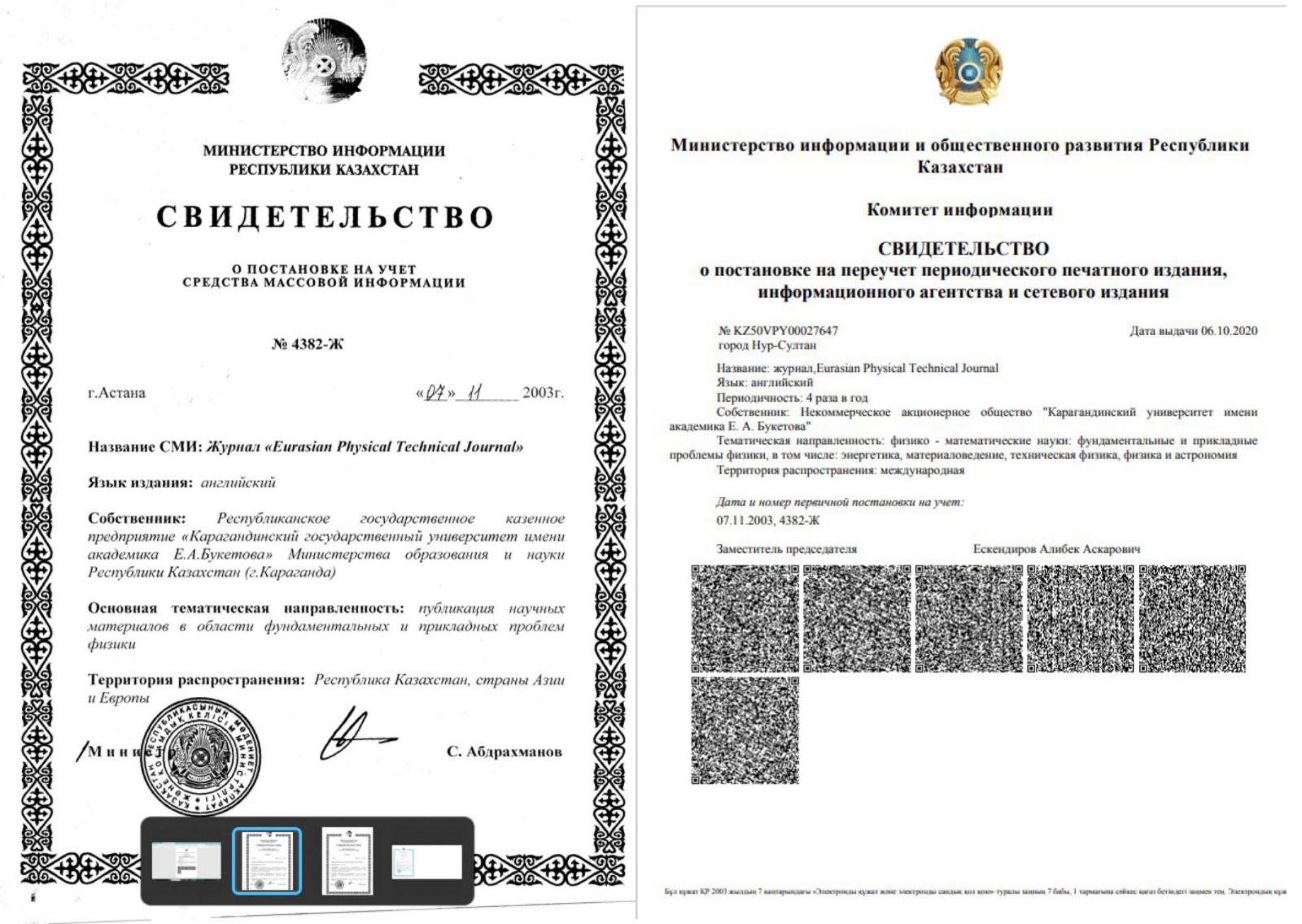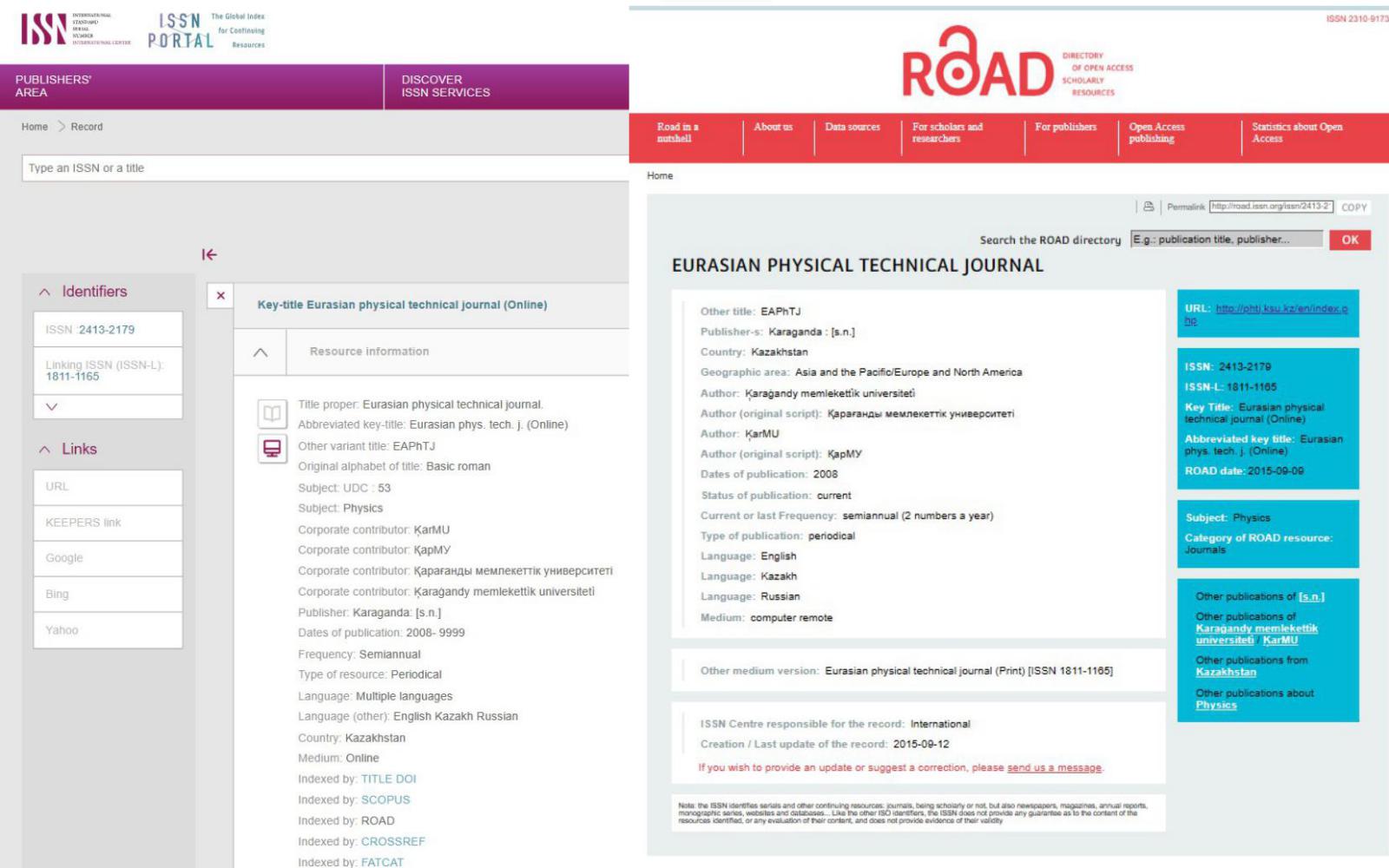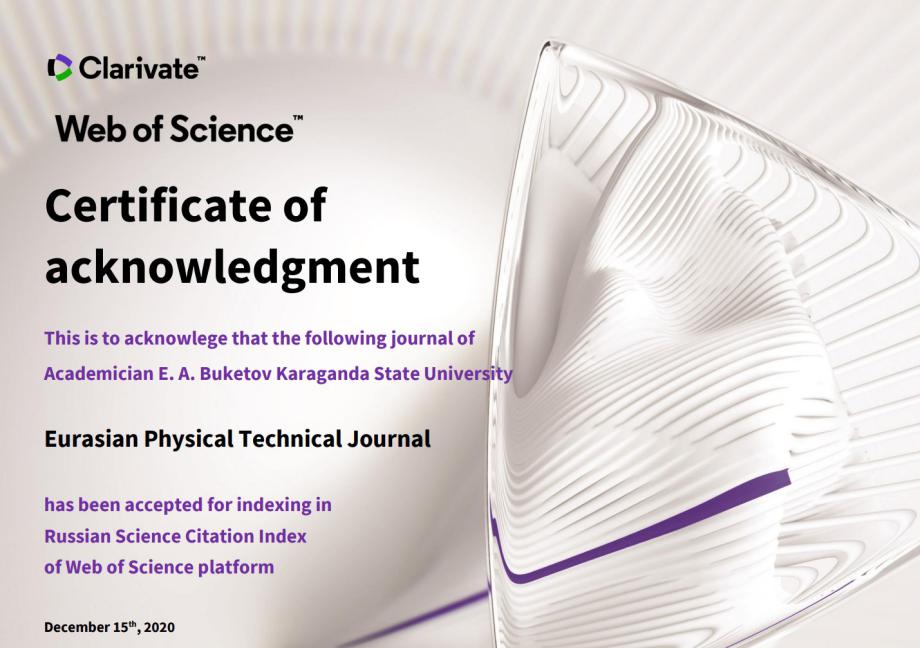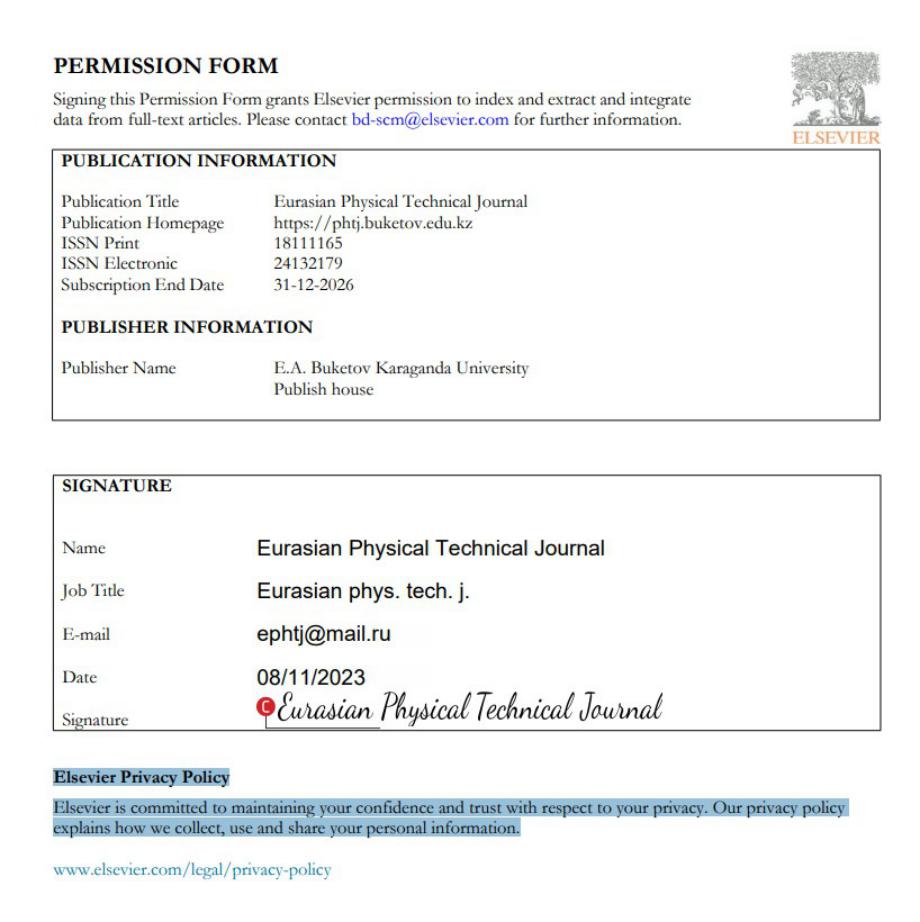Исследование аэродинамической силы тяги ветроэнергетической установки с комбинированными лопастями
DOI:
https://doi.org/10.31489/2023No2/65-69Ключевые слова:
ветроэнергетическая установка, скорость потока, комбинированная лопасть, аэродинамическая труба Т-1-М, сила тяги, частота вращенияАннотация
В данной статье рассмотрена ветроэнергетическая установка с горизонтальной осью вращения, работающая в условиях переменных скоростей ветра. Для данной цели был изготовлен макет ветроэнергетической установки с вращающимися комбинированными лопастями. В ходе выполнения экспериментов угол расположения неподвижной лопасти относительно цилиндра изменялся от 0° до 60°, с шагом 15 °.Скорость воздушного потока варьировался, от 3 до 12 м/с. Проведен анализ результатов эксперимента по изменению частоты вращения от скорости воздушного потока ветроэнергетической установки. При изменении положения неподвижной лопасти (0°, 15°, 30°, 45°, 60°) значение силы тяги меняется относительно воздушного потока прямо пропорционально. С ростом скорости воздушного потока, частота вращения ветроколеса растет линейно. Установлено, что при расположении неподвижной лопасти под углом 60 градусов, при максимальной скорости воздушного потока 12 м/с значения силы тяги достигла 2,06 Н. За счет комбинированного использования двух подъемных сил, таких как цилиндра и неподвижной лопасти, наблюдаются повышенные значения силы тяги. Полученные результаты являются полезными при создании опытных образцов ветроэнергетической установки с комбинированными лопастями.
Библиографические ссылки
Yuan Z., Liang F., Zhang H., Liang X. Seismic analysis of a monopile-supported offshore wind turbine considering the effect of scour-hole dimensions: Insights from centrifuge testing and numerical modelling. Ocean Engineering, 2023, 283, pp. 115067. doi:10.1016/j.oceaneng.2023.115067
Karatayev M., Clarke M.L. Current energy resources in Kazakhstan and the future potential of renewables: A review. Energy Procedia, 2014, 59, pp. 97-104. doi: 10.1016/j.egypro.2014.10.354
del Campo V., Ragni D., Micallef D., Diez F. J., Ferreira C. S. Estimation of loads on a horizontal axis wind turbine operating in yawed flow conditions. Wind Energy, 2015, 18(11), pp.1875-1891. doi: 10.1002/we.1794
Lotfi R., Mardani N., Weber G.W. Robust bi‐level programming for renewable energy location. International journal of energy research, 2021, 45(5), pp. 7521-7534. doi: 10.1002/er.6332
Tanasheva N.K., Sakipova S.E., Minkov L.L.,Bakhtybekova A.R., Shuyushbaeva N.N., Burkov M.A. Study of aerodynamic characteristics of a cylindrical blade with deflector. Eurasian Physical Technical Journal, 2021, 18(3 (37)), pp.48-52. doi: 10.31489/2021No3/48-52
Manyonge A.W., Ochieng R.M., Onyango F.N., Shichikha J.M. Mathematical Modelling of Wind Turbine in a Wind Energy Conversion System. Applied Mathematical Sciences, 2012, Vol. 6 (91), pp. 4527–4536.
Tanasheva N.K., Kunakbaev T.O., Dyusembaeva A.N., Shuyushbayeva N.N., Damekova S.K. Effect of a rough surface on the aerodynamic characteristics of a two-bladed wind-powered engine with cylindrical blades. Technical Physics, 2017, 62 (11). рр. 1631-1633. doi: 10.1134/S1063784217110299
Baishagirov H.J. Wind power plant. Publ. 2012, 4, 4p. [in Russian]
Bukatov N.S., Buktukov B.J., Moldybaeva G.J., Iakov A.K. Wind farm Butukova 6 (option). Publ. 2013, 12, 4p. [in Russian]
Bychkov N.M. Wind turbine with Magnus effect: 1 Results of model studies. Thermophysics and aeromechanics. 2004, –11 (4), pp. 583-596.













